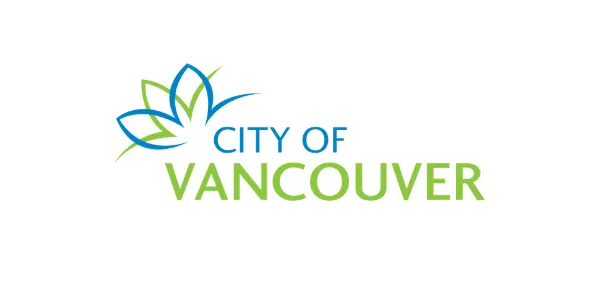
When we got our rescue dog, they said he'd bitten other dogs in the past. But he's so gentle! Yet I've been told that because of his past, he's a so-called "dangerous dog," and if I don't take extra precautions I could be in legal trouble if he re-offends. Is that right?
Whatever your choice of a pet — big or small, traditional or exotic, a companion or a helper — you have legal responsibilities as its owner. They extend both to the pet and to your fellow humans. Let’s look at what you need to know about taking care of your pet at home. (We also have information on taking care of pets in public.)
What you should know
You’ve bought the crate, a snazzy new leash, and your bathroom is covered in newspaper. Good on you for preparing for your new pet’s arrival. But there might still be a few things to consider.
In BC, owners or guardians of pets must give them proper care. There are laws that protect animals from cruelty and neglect. You must make sure your pet is healthy and safe and free from distress. That includes keeping it fed, keeping it secure in your vehicle while you drive, and making sure its “home” is a proper temperature (especially if it’s outside). You’re responsible for any pet you have “custody or control” of — whether you own it or not. Parents are responsible for their minor children’s pets.
Each community may also have its own specific requirements for pet ownership. These may include, for example:
licensing fees and tags
leashing rules
maximum number of pets you can have at once
enclosure or fencing rules
Local bylaws set out these requirements. We’ll delve deeper below. And if you live in a strata, make sure to review your strata bylaws. There may be specific requirements on the type, size, and number of pets you can have in your home.
“I just moved from Calgary to Abbotsford with my two dogs. I figured it’s the same rules across the country — get them some dog tags, and make sure they’re on a leash outside sort-of-thing. I hadn’t realized that there could be specific rules depending on what municipality I lived in."
– Brock, Abbotsford, BC

Animal control laws — usually made by municipal governments — protect people from pets. These laws are mainly concerned with guarding public health and safety.
Municipalities often require that pets be licensed. For example, Vancouver charges $61 each year to have your dog licensed. It isn’t a total cash grab — fees go to fund animal shelters, among other services. Call or Google your local municipality for the details on this.
There are also rules on what types of animals you can keep. Hens, for example, are allowed in Vancouver, but they need a minimum amount of space to roam (among other requirements — check out section 7.15 of this bylaw). Exotic animals, and even certain breeds of dog, may not be allowed (again, depending on your municipality).
What about spaying and neutering? It’s not required by law, but it’s strongly recommended for effective animal population control. (One cat seemed like a cute idea; wake up to 12 kittens and now you’re about to really get to know your neighbours.) Look at the BC SPCA’s advice here.
And yes, in case you're wondering, when your dog does its business, you have to pick up the droppings. See, for example, section 35 of Victoria’s animal responsibility bylaw.
Find the pet bylaws in your community
Check out the CivicInfo BC website for specific pet care and control bylaws in your area. In the search box, type in “animal bylaw [community name]”.
Part of proper pet control is making sure they stay on your property. This rule is typically enforced under a municipality’s local bylaws. In Vancouver, for example, you can’t allow your dog to “run at large.” The same applies to all other types of pets (except domestic cats): they can’t go exploring without you. These rules vary by the local community.
Allowing your pet to freestyle around the neighbourhood puts it at risk of being lost, attacked, or involved in an accident. It can also create problems for your neighbours. They’re entitled to enjoy their private space without your pet crashing the party and possibly causing damage or chasing their own animals.
If your pet strays, consider notifying the municipality or your neighbors that it has gone AWOL. In the legal world, we’d call this step “mitigation.” It probably won’t get you off the hook entirely if your pet does damage. But if you’re actively trying to prevent injury or damage, that can reduce your exposure to liability.
If your pet is caught roaming, you could face a fine from the municipality. Repeat offences could up the ante. Animal control officers might take additional measures, such as imposing curfews or even seizing the animal. You as the owner or guardian can be held liable for any damage your pet does.
But context is important here. If you’re on good terms with your neighbour, who’s a cat lover, you can probably get away with Mittens shimmying through the fence every now and then. But if you’re caring for an aggressive dog that has escaped your yard, you might want to report it to the municipality and immediately begin to search for it.
“I’d taken care of a friend’s German Shepherd, so I know a thing or two about how to handle an unruly dog. But that was in a suburban house, where we had a large outdoor space and a fence. I live in a condo. And now that I’ve got my own German Shepherd, I’ve got to be careful about how to best take care of her. It can feel like a full-time job sometimes!"
– Anna, Port Coquitlam, BC

Dangerous breeds may have additional requirements. What’s considered dangerous? Unfortunately, there’s no clear-cut list. A lot depends on your pet’s prior behaviour, and whether your municipality has specific rules around the care of aggressive or dangerous animals. For example, in Vancouver, an aggressive dog is defined as one that has "without provocation, displayed aggressive behaviour or bitten another domestic animal or a person."
If you have an aggressive breed, you need to pay particular attention to your pet’s enclosure at home. It should be sufficient not only to prevent the pet from escaping, but also from attacking any guests that may come onto your property.
You may even need a sign on your property warning that a dangerous animal lives on the premises. This is required in Victoria for dangerous dogs, as an example.
A noisy pet can lead to nuisance complaints. How noisy is too noisy? The answer is fuzzy. The law says noise can’t unreasonably interfere with a person’s quiet enjoyment of their property.
If your dog barks once in a while during the day, that might not meet the unreasonableness standard. But if she howls every night at 2 am, that likely would.
Dogs tend to bark a lot if they’re lonely, bored, or not getting enough exercise. Making some changes to the dog’s routine or environment may help fix the problem. Get professional help from a vet or dog trainer if you’re unsure.
Noise complaints are typically made at the local level. Google your municipality to see what number to call (most likely not the emergency line!). Once a complaint is made, the municipality will usually investigate the complaint, try to talk to the pet owner, and then decide whether to levy a warning or a fine.
Dealing with noise and neighbours
For more information on pet noise and how to complain about it, take a look at our page on noise and neighbours.
Pet attacks happen, despite the best intentions of owners. We have detailed information on dog attacks and injuries. You may consider reaching out to a lawyer to understand your rights.
British Columbia keeps a list of exotic animals that are prohibited from personal ownership. More than 1,000 dangerous animals are designated “controlled alien species” because they pose a potential threat to people, property, wildlife, and wildlife habitat. Typically, these animals can only be legally kept under certain conditions: if you have a permit, if you’re doing a one-off photo or video shoot, or if they’re zoo or aquarium animals.
Those caught violating these laws can face steep fines and significant jail time. For more information, take a look at the government’s primer on controlled alien species.
All this doesn’t mean you have to stick to a cat or dog. But if you’re considering owning an “alternative” pet, you should become very familiar with how to take care of it. If a spider or non-venomous snake escapes from its enclosure, local animal control personnel may react swiftly to ensure the public is safe.
Take action to prevent problems
Getting a pet licence is simple, and very much worth it. It’ll be easier to track down your pet if it goes AWOL. And you’ll be contributing to valuable municipal programs that protect animals and the public. Go online and Google your municipality to learn about the process. In Vancouver, you can buy a dog licence online for $61.
You can also register your pet with the BC Pet Registry. This is a service run by the BC SPCA. You can install a small microchip under your pet’s skin and track it if it gets lost.
“I live in a pet friendly building, but no dogs lived on my floor. Before I brought my puppy home, I left a note and a small gift card outside of my neighbours’ doors. It might seem silly (or even too apologetic in advance), but I think these small gestures went a long way — puppies can be noisy and smelly, and my neighbours were so understanding."
– Alex, Victoria, BC

Being proactive here can go a long way. Consider chatting with your neighbours around the time you get your pet. This can help whether you live in a single family home, a condo, or an apartment.
Oftentimes, pet owners don’t know when their pets misbehave. Invite your neighbours to call you if your pet strays onto their property or is being too loud.
You should routinely check to make sure your gates are properly closed and that your pet’s enclosure (if they have one) is secure. Certain pets need a stronger fortress than others — Google your breed or consult a local pet store.
And we don’t mean some sort of special, expensive, pet-specific insurance. Many home insurance policies, whether you’re a renter or an owner, include liability insurance. This could cover you for any damage done by your pet, and possibly pay for the costs of your legal defence.
Get in touch with your insurance company or broker to understand the details. You may have to declare that you have a pet in your home, and certain exotic or dangerous breeds may not be covered. You should also understand where you’re covered (for example, just in your home, or out in the park as well?), and what deductible you’d have to pay in the event of a claim.
Who can help

BC SPCA
Non-profit that works to protect and enhance quality of life for animals in BC.

City of Vancouver Animal Services
Assistance with dog licences, pet adoption, and bylaw enforcement in the city.

